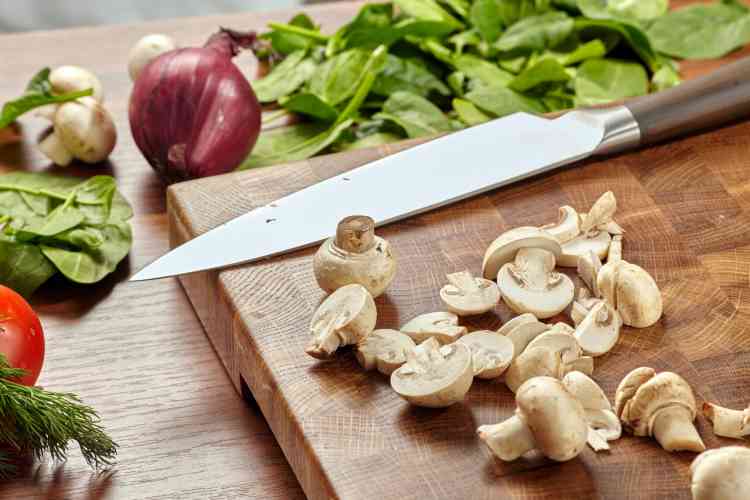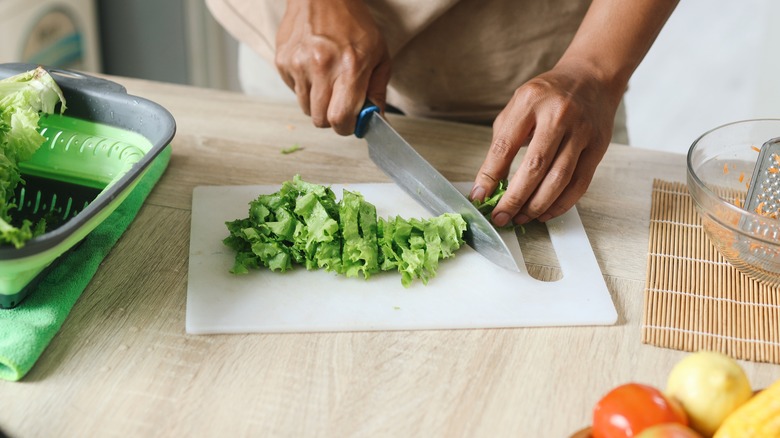In the culinary world, a chef's knife is more than just a tool; it becomes an integral part of their identity. For kitchen professionals, ensuring their knives remain sharp and well-maintained is essential for achieving culinary excellence. This German knife maintenance guide serves as a vital resource for anyone who appreciates the superior craftsmanship behind these exceptional knives.
German knives are celebrated for their strength, balance, and exceptional sharpness. Yet, like any premium tool, they require specific care to maintain their performance over time. In this guide, we'll explore the best practices for preserving these culinary instruments, ensuring they continue to serve you well for years ahead.

Getting to Know Your German Knife
Before diving into maintenance tips, it's important to appreciate what sets German knives apart. Typically made from high-carbon stainless steel, these knives offer an optimal combination of strength and resistance to rust. Their full tang design, where the blade continues through the handle, contributes to their balance and makes them a preference for many professional chefs.
The Importance of Maintenance
Regular maintenance is critical; without it, even the finest German knives can become dull or corroded. For kitchen professionals, the sharpness of a knife directly influences efficiency and precision. A well-maintained knife not only enhances your cutting capabilities but also promotes safety, as dull knives can easily slip during use.
Sharpening Your German Knife
Sharpening is the foundation of effective knife maintenance. For German knives, using a whetstone is highly advisable. Immerse the stone in water, then sharpen the blade at a consistent 15-degree angle. This method helps maintain the blade's edge and its overall integrity.
If you're new to sharpening, refer to this sharpening stone guide to improve your proficiency. Regular sharpening not only enhances your knife's performance but also extends its lifespan.
Honing: An Essential Step
While sharpening is crucial, honing is equally important. This technique realigns the edge of the blade, ensuring it stays sharp between sharpening sessions. Use a honing steel at a 15-degree angle, and gently glide the blade along the steel from heel to tip.
Cleaning and Proper Storage
Proper cleaning and storage are vital for maintaining the longevity of your German knife. Always hand wash the blade with mild soap and warm water, steering clear of dishwashers that may cause harm. Be sure to dry the knife immediately to avoid any rust formation.
For storage, consider using a knife block or magnetic strip. These methods protect the blade from accidental damage and contribute to safety in your kitchen. Explore these knife care tips for more information on cleaning and storing your knives effectively.
Avoiding Common Mistakes
To prolong the life of your German knife, avoid cutting on hard surfaces like glass or stone, as these can dull or chip the blade. Instead, a wooden or plastic cutting board is ideal. Also, steer clear of using your knife to cut through bones or frozen foods, as this puts undue stress on the blade.
The Value of Quality and Knowledge
Investing in a German knife signifies a commitment to high standards. However, preserving this investment requires knowledge and dedication. By adhering to the practices outlined in this German knife maintenance guide, culinary professionals can keep their knives as cherished assets in their kitchen toolkit.
For further insights into the craftsmanship of German knives, visit this comparison of steel types.
Conclusion
German knives are not merely kitchen tools; they are partners in your culinary journey. By following proper maintenance practices, you can ensure their precision, enhance your cooking performance, and prioritize safety. Remember, a well-cared-for knife truly is a chef's best ally.

FAQ
Q: How often should I sharpen my German knife?
A: Its recommended to sharpen your German knife every few months, depending on how frequently you use it. Regular honing will help maintain the edge during those intervals.
Q: Is it safe to put my German knife in the dishwasher?
A: No, dishwashing can damage both the blade and handle. Always opt for hand washing and dry immediately.
Q: What is the best storage solution for my German knife?
A: The ideal method is to store your knife in a knife block or on a magnetic strip, protecting the blade while ensuring its safely stored.


























